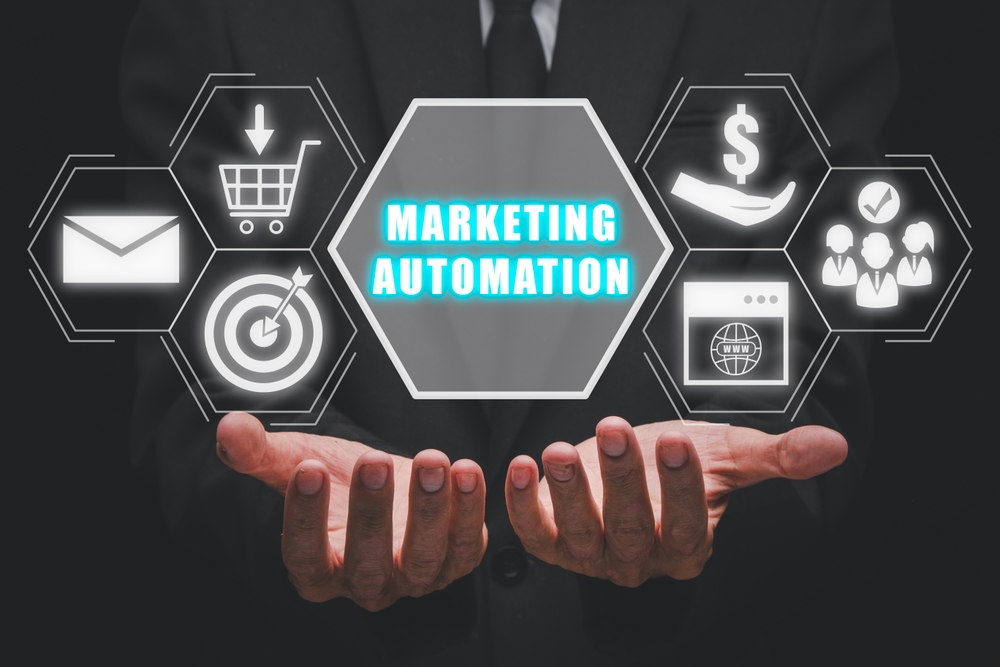Marketers are under constant pressure to produce high-quality content consistently. While content creation is crucial, managing and distributing it efficiently can be challenging. This is where content marketing automation tools come into play, helping businesses streamline their marketing efforts, save time, and increase overall efficiency. By handling routine tasks automatically, these tools allow marketers to dedicate more time to strategic planning and creative efforts.
What is Content Marketing Automation?
Content marketing involves leveraging technology to streamline and automate key processes such as creating, distributing, and analyzing content. This includes scheduling posts, managing content workflows, personalizing emails, and tracking campaign performance. By automating these processes, businesses can ensure that their content reaches the right audience at the right time without the need for manual intervention. These tools are designed to work across different content marketing platforms, from social media to email marketing, making it easier to coordinate efforts across all channels. By implementing automation into your content marketing strategy, you can scale your campaigns more efficiently and achieve better results.
Key Benefits of Marketing Automation
1. Time Savings
One of the biggest advantages of automating content marketing is the substantial amount of time it helps save. Manual content distribution and scheduling can take up a lot of time, especially for large teams managing multiple platforms. By automating these processes, marketers can schedule posts in advance, allowing them to focus on other important tasks, such as strategy development and content creation. With the right automation tools, you can set up campaigns to run on autopilot, ensuring that your content is published regularly without having to monitor every step. This results in increased productivity and a smoother, more streamlined workflow.
2. Improved Targeting and Personalization
Content marketing automation tools allow you to segment your audience based on various criteria, such as behavior, demographics, and past interactions with your content marketing content. By automating the delivery of personalized content to each segment, you can ensure that your message resonates with the right people. For example, instead of sending a generic email to all your subscribers, you can automate personalized email campaigns that target specific groups with tailored content. This level of personalization not only improves engagement but also increases the chances of conversion.
3. Consistency and Accuracy
Keeping a regular content schedule is essential for developing a loyal and engaged audience. With content marketing automation, you can ensure that your content is consistently published at optimal times. You can create content in bulk, schedule it in advance, and let the tool manage the rest.
Automation tools also reduce the risk of human error, ensuring that your content is delivered accurately and at the right time. This eliminates the need for last-minute corrections or missed posts, which can be damaging to your brand’s reputation.
4. Enhanced Analytics and Reporting
Most content marketing tools come with built-in analytics and reporting features, allowing you to track the performance of your campaigns in real-time. By monitoring key metrics like open rates, click-through rates, and social media engagement, you can measure the success of your content and make data-driven decisions for future campaigns. These insights help marketers understand which content is performing well and what needs improvement. With accurate reporting, you can continuously optimize your content strategy to achieve better results.
Popular Content Automation Tools
To make the most of marketing automation, it’s important to choose the right tools. Here are a few popular options that can help streamline your content marketing efforts:
1. HubSpot
HubSpot is a comprehensive content marketing tool that offers everything from content creation to distribution and content marketing analytics. It allows you to schedule blog posts, automate email marketing campaigns, and manage your social media presence all in one place. HubSpot’s user-friendly interface makes it an excellent choice for marketers looking to streamline their workflow.
2. Buffer
Buffer is a social media management tool that allows marketers to schedule posts across multiple platforms. With Buffer, you can plan your content calendar, automate social media posting, and analyze performance with detailed reports. It’s perfect for businesses looking to manage their social media marketing efforts without manual intervention.
3. Mailchimp
Mailchimp is widely known for its email marketing automation capabilities. It enables marketers to design customized email campaigns, automate follow-ups, and monitor their effectiveness. With its intuitive interface, Mailchimp helps you manage your email lists, segment subscribers, and send tailored content to the right audience.
4. CoSchedule
CoSchedule is an all-in-one content marketing platform that integrates with various tools like WordPress, Google Analytics, and social media platforms. It allows you to schedule posts, create content campaigns, and track the performance of each piece. CoSchedule also provides a content calendar to help you plan and organize your marketing strategy.
Best Practices for Using Content Marketing Tools
While content marketing automation tools can save time and improve efficiency, it’s essential to use them strategically. Here are a few best practices to get the most out of your automation tools:
Quality Content First: Automation tools are only effective if you’re creating high-quality content. Concentrate on creating meaningful and relevant content that connects with your intended audience.
Track and Improve: Even with automation in place, it’s important not to take a hands-off approach. Continuously review your analytics and refine your strategies based on how well they’re performing.
Divide Your Audience: Leverage automation tools to categorize your audience and provide them with tailored content. This improves engagement and conversion rates.
Conclusion
Implementing content marketing automation tools into your strategy can significantly improve efficiency, increase engagement, and ultimately drive business growth. By saving time, enhancing targeting, and providing detailed insights into your campaigns, these tools allow marketers to work smarter, not harder. By choosing the right tools and applying best practices, you can scale your content marketing efforts and achieve long-term success.


